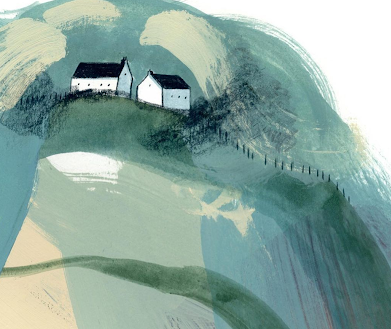Emerging in the late 18th century, Romanticism was a movement that celebrated emotion, imagination, and nature over reason. Poets like Wordsworth and Shelley famously wrote about the sublime, an admiration for nature, depicting it as a path to spiritual transcendence. For Wordsworth and Shelley the hills offered peace, for Brontë, on the other hand, they offered madness and chaos, standing to represent something beautiful but untamable. In Wuthering Heights, nature is not serene or idealized as in most Romantic literature, but raw and alive, as unpredictable as the people who inhabit it.
Emily Brontë doesn’t reject Romantic ideals, but she doesn’t conform to them either, instead opting to deepens them, taking passion, individuality, and the natural world and stripping away the perfecting, illustrating something real. Her characters don’t speak in grand declarations of perfect love; they live through contradictions, devotion and cruelty, tenderness and rage, belonging and exile. For Brontë, love is not beautiful because it’s easy, it’s beautiful because it’s impossible to simplify. Even the moors, the natural world Romantic poets praised for harmony, echo inner chaos instead of peace.
This is further emphasized through Brontë’s interpretation of the sublime. The Yorkshire moors, serve as a mirror, not a sanctuary, and are emblematic of the violent and unyielding nature of the central characters. The wind and rain and fog become language, surpassing any type of extended metaphor or pathetic fallacy. In Brontë’s world, nature doesn’t comfort, it confronts, echoing the characters’ wildness. The romanticism still resonates, it is simply portrayed through different lenses, where her version of the sublime is not about escaping into beauty but confronting it, even when it’s uncomfortable.
I first read Wuthering Heights expecting a love story, but what I found was something far more human, a reflection of how passion and reason constantly wrestle within us. We still crave meaning in our emotions, even when they confuse or hurt us. The novel doesn’t portray love as purity or harmony but as intensity: something that demands honesty, vulnerability, and resilience. It doesn’t idealize emotion; it humanizes it. In a world that often rewards calmness and control, Brontë reminds us that feeling deeply is not a flaw. It’s what makes us alive.
Nearly two centuries later, Wuthering Heights still howls across literature like the wind on its moors. Romanticism promised beauty in passion: Emily Brontë revealed the darkness beneath it. Her novel suggests that love, like nature, is not always gentle or warm, that it cannot be tamed, only weathered. And perhaps that’s why I love it: because even in its chaos, it feels true.














